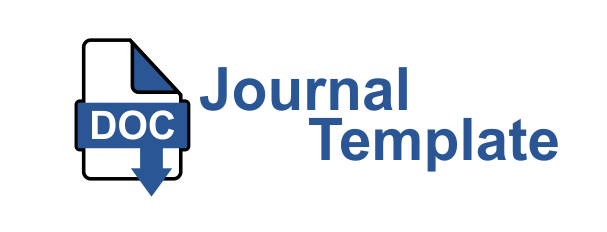Socialization of Prediabetes Eating: The Right Way to Prevent Diabetes
Sosialisasi Pola Makan Prediabetes: Cara Tepat Cegah Diabetes
Abstract
Diabetes is a metabolic disorder disease characterized by blood sugar levels that exceed normal limits. The International Diabetes Federation shows that Indonesia is in the 5th position of the country with the most diabetes sufferers. The results of the 2018 Basic Health Research (RISKESDAS) show an increase in the number of people with diabetes. Before someone is diagnosed with diabetes, that person may have a condition called prediabetes. Diabetes which is a non-communicable disease can be prevented by lifestyle changes. The prevalence of diabetes sufferers in East Java Province is 2.6% and occupies the 4th position with the highest number of sufferers in Indonesia. Data from the Central Statistics Agency (BPS) shows that the population in the city of Surabaya in 2022 will reach 2.9 million people, the size of the population also affects the possibility of the number of diabetics. Therefore, education is needed about prediabetes and efforts to prevent and control diabetes through a healthy lifestyle. The Community Partnership Program (PKM) is implemented to provide solutions to health problems, especially in educating partners in changing lifestyles to become healthier, in order to prevent the development of pre-diabetes.
Downloads
References
Dudley, Brooke, Brianne Heiland, Elizabeth Kohler-Rausch, dan Mark Kovic. 2014. “Education and technology used to improve the quality of life for people with diabetes mellitus type II.†Journal of Multidisciplinary Healthcare 7: 147–53.10.2147/JMDH.S52681
Gao, Junling et al. 2013. “Effects of self-care, self-efficacy, social support on glycemic control in adults with type 2 difile:///Users/hannahkeal566/Desktop/ContentServer.pdfabetes.†BMC Family Practice 14: 2–6: 10.1186/1471-2296-14-66
International Diabetes Federation. 2017. “IDF_DA_8e-EN-final.pdf.†IDF Diabetes Atlas: 17–20.
Kusnanto, Kusnanto, Putri Mei Sundari, Candra Panji Asmoro, dan Hidayat Arifin. 2019. “Hubungan Tingkat Pengetahuan Dan Diabetes Self-Management Dengan Tingkat Stres Pasien Diabetes Melitus Yang Menjalani Diet.†Jurnal Keperawatan Indonesia 22(1): 31–42 10.7454/jki.v22i1.780
Luawo, Herman Priyono et al. 2019. “Aplikasi e-diary DM sebagai alat monitoring manajemen selfcare pengelolaan diet pasien DM.†NURSCOPE: Jurnal Penelitian dan Pemikiran Ilmiah Keperawatan 5(1): 32.10.30659/nurscope.5.1.32-38
Perkeni. 2021. “PENGELOLAAN DAN PENCEGAHAN DIABETES MELITUS TIPE 2 DI INDONESIA.â€
Kementerian Kesehatan Republik Indonesia. 2014. Peraturan Menteri Kesehatan Republik Indonesia Nomor 41 Tahun 2014 Tentang Pedoman Gizi Seimbang
Prasetyo, Endro Dwi. 2016. “Aplikasi Perhitungan Kebutuhan Zat Gizi Pada Penyakit Diabetes Berbasis Android.†: 2–17.
Riset Indonesia, Kemenkes. 2018. “Laporan Hasil Riset Kesehatan Dasar (Riskesdas) Indonesia tahun 2018.†KEMENTRIAN KESEHATAN REPUBLIK INDONESIA 4(1): 88–100.
Suryanti, Sevia Dwi, Anggi Tunjung Raras, Cleonara Yanuar Dini, dan Adhe Hariani Ciptaningsih. 2019. “Hubungan Indeks Masa Tubuh Dengan Kadar Gula Darah Puasa Pada Pasien Diabetes Melitus Tipe 2.†Poltekita: Jurnal Ilmu Kesehatan 13(2): 86–90.10.33860/jik.v13i2.213
Sami, Waqas, and Tahir Ansari. “Effect of Diet on Type 2 Diabetes Mellitus: A Review.†International Journal of Health Sciences 11, no. 2 (2017).
Prabowo, Nurhasan Agung, Tonang Dwi Ardyanto, Muchtar Hanafi, and Niken Dwi Aryani. “Peningkatan Pengetahuan Diet Diabetes, Self Management Diabetes dan Penurunan Tingkat Stres Menjalani Diet pada Pasien Diabetes Mellitus Tipe 2 di Rumah Sakit Universitas Sebelas Maret,†n.d.10.23917/warta.v24i2.12515
Copyright (c) 2023 Dewi Perwito Sari, Prisma Trida Hardani, Nadya Ambarwati, Amanda Safitri Sinulingga, Asri Wido Mukti, Eka Fitria

This work is licensed under a Creative Commons Attribution 4.0 International License.
Authors who publish with this journal agree to the following terms:
- Authors retain copyright and grant the journal right of first publication with the work simultaneously licensed under a Creative Commons Attribution License (CC-BY) that allows others to share the work with an acknowledgment of the work's authorship and initial publication in this journal.
- Authors are able to enter into separate, additional contractual arrangements for the non-exclusive distribution of the journal's published version of the work (e.g., post it to an institutional repository or publish it in a book), with an acknowledgment of its initial publication in this journal.
- Authors are permitted and encouraged to post their work online (e.g., in institutional repositories or on their website) prior to and during the submission process, as it can lead to productive exchanges, as well as earlier and greater citation of published work (See The Effect of Open Access).











